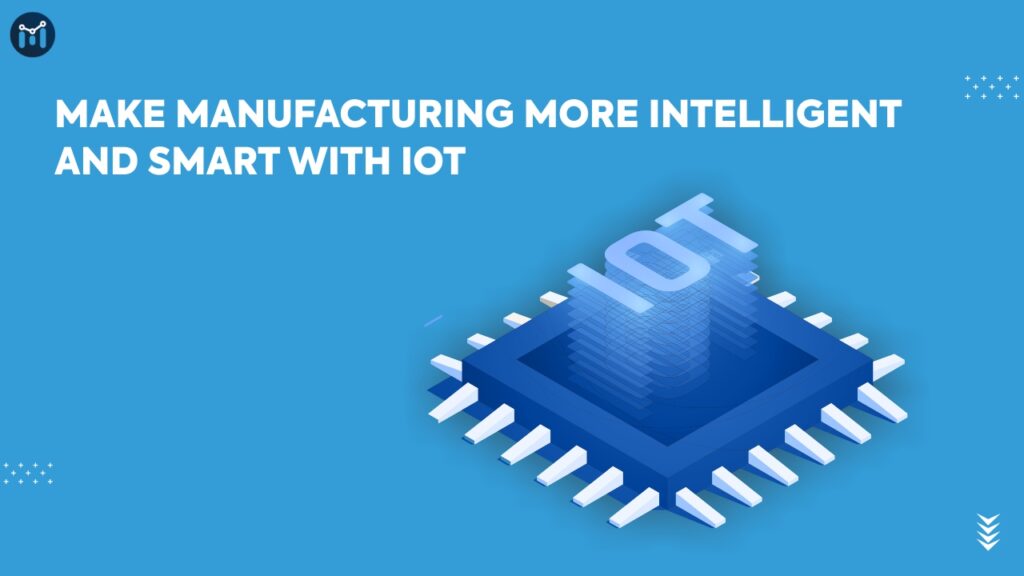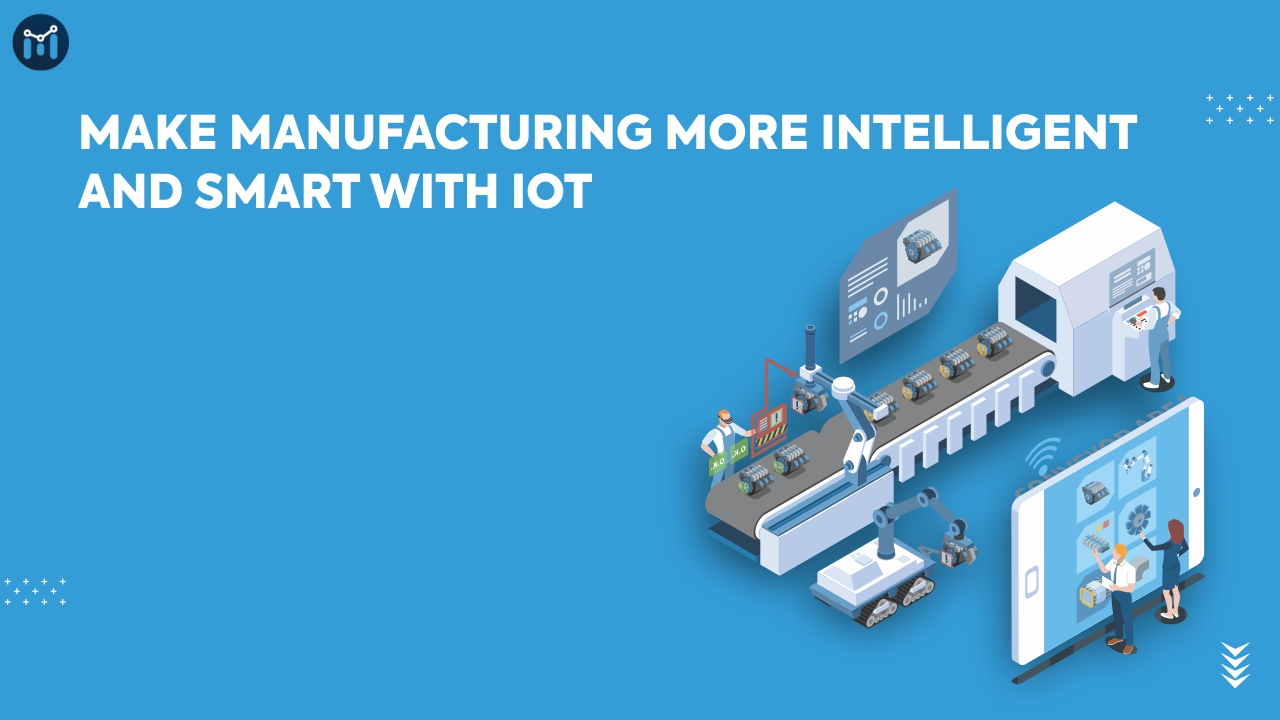To succeed in the manufacturing sector, businesses are turning to more innovative operations that are resulting in higher productivity. To transform their warehouses and ensure quick delivery of products businesses are making use of the Internet of Things, thereby introducing a new terminology called smart manufacturing. Smart manufacturing is the process in which IoT technology is used in the manufacturing process to achieve optimum efficiency. Opportunities are identified to improve manufacturing performance and hold a vital place in the Industrial IoT ecosystem. IoT in manufacturing aids in optimizing manufacturing processes in terms of cost, resource management, and performance and also helps in collecting customer feedback.
 How is Smart Manufacturing related to the Industrial IoT?
How is Smart Manufacturing related to the Industrial IoT?
Smart manufacturing is carried out with the help of IoT connected devices, data analytics, big data, machine learning, robotics, and artificial intelligence, where all these technologies are used together to optimize the manufacturing process, assist manufacturers, and ensure the safety of the workers. Factory managers make use of smart manufacturing to collect and analyze data that help them take better decisions for optimizing their production. IoT apps are deployed at the factory level to communicate the data from sensors and equipment. Thus, IoT technology allows to remotely manage the processes and enables managers to change the production plan in real-time when required. Because of the IoT-connected devices, it is easy to have a check on the quality and make alterations in the product’s design that significantly improves the outcomes, reduce production waste, and yield top-quality products.
Our blog on Indian Manufacturing: Key Challenges & Pain Points in the Value Chain will add more information into your knowledge bucket about Manufacturing.
Potential benefits of the smart manufacturing
Avoid Downtime and Increase Machine Availability – IoT connected devices automatically collect performance data that is used for predictive maintenance, thereby avoiding machine downtime. With manufacturers seeking ways to increase their productivity and clients expecting faster production and greater customization, the use of IoT in manufacturing is proving pivotal.
Better Operation Efficiency – With the use of IIoT in manufacturing factories, plant managers have a better understanding of the process at each stage of the manufacturing process and hence they are able to implement real-time solutions that further lead to greater efficiency and reduced costs.
Ensure Complete Safety to Workers – IoT-enabled smart factory has automated tracking and also analyzes workers’ movements and activities that help in mitigating risks. With a safety system installed, the concerned person is warned about the specific injury risks so that they can find faults in new or routine tasks or identify lapses in the process.
Digitize Supply-Chain – With the help of Industrial IoT-connected devices, businesses can automatically track the location of their product in real-time. Besides, data can also be easily shared between shippers, consigners, carriers, and freight forwarders, and hence there is more transparency, accountability, flexibility, and automation that lead to greater cost efficiencies.
Environmentally Sustained Operations – IoT has completely transformed the manufacturing sector with the use of smart sensors, actuators, and chips that allow manufacturers to record, capture, and analyze vital information related to their production assets and resources. Having a detailed overview of their machinery and materials, managers of smart factories efficiently handle demands even of sorter delivery times with more environmentally sustainable operations.


 How is Smart Manufacturing related to the Industrial IoT?
How is Smart Manufacturing related to the Industrial IoT?